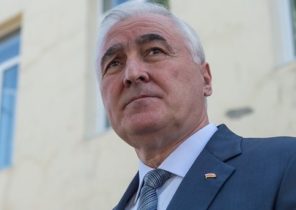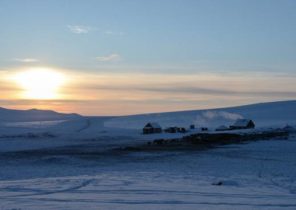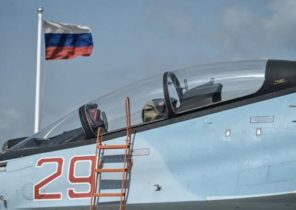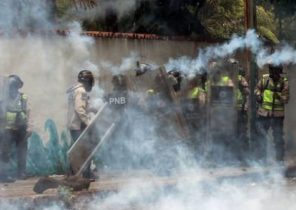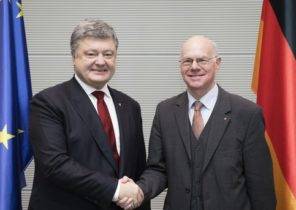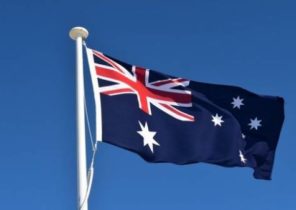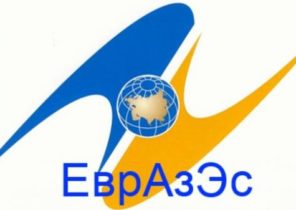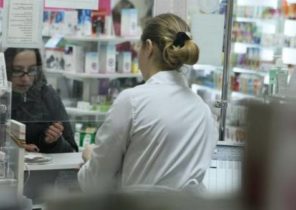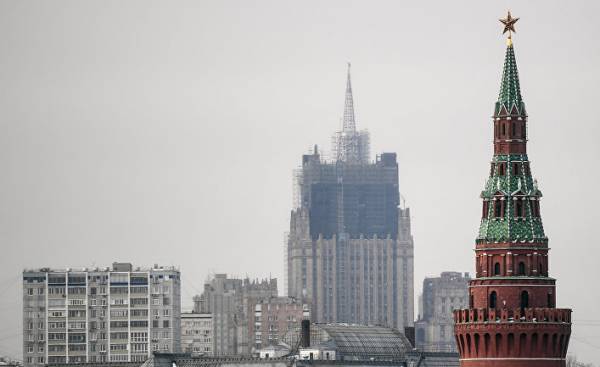
Part I: 1985
In 1985 I spent 13 days in Russia, which then was officially called the Union of Soviet Socialist Republics. However, for convenience I will call it Russia. The organization that trip worked the Smithsonian institution, and in our group there were about 100 people. After 32 years, during which occurred a great many radical changes, I again went to Russia, this time with three dozen comrades and under the auspices of the National Symphony orchestra. And I saw a completely different Russia. In this article I will tell about my first visit to Russia.
In 1985, my trip to Russia accounted for 15-27 may, I arrived there almost immediately after the celebration of the 40th anniversary of the Soviet victory over Nazi Germany, which they annually celebrated as the victory in the great Patriotic war, as well as after three months after the Politburo did Mikhail Gorbachev General Secretary of the Communist party is a kind of equivalent of a modern Prime Minister. After returning home, I gave the paper my notes, which I made daily during the trip. On the basis of them I recorded their memories.
May 15, Leningrad. Our flight from Finnair lands at the airport in Leningrad. On the runway I see a total of about 10 aircraft and this airport city with a population of almost 5 million people. The only baggage conveyor drops the suitcases on top of one another. We arrive at our hotel — the hotel “Moscow” — and we need more hours to settle on the room, despite the presence of many administrators. Thus we are introduced to one of the traditional pastime in Russia, with standing in line. In the evening while brushing your teeth I rinse my mouth out Soviet soda because I was told that in the Leningrad water was discovered a dangerous parasite. But soda is so nasty that the parasite begins to seem like quite a good alternative.
May 16, Leningrad. We visited a Soviet high school, where 12-year-olds show us a scene from “Huckleberry Finn.” The children perform very well, even too well. Somehow it seems to me that this is not peculiar to Soviet education. But kids are kids, and girls named Masha and Natasha are just adorable. The impression is that they do not differ from their peers in the West — at least while they are in plain sight. When children grow up in a totalitarian state, they learn to take certain precautions at an early age.
In the evening we travel by train to Tallinn, capital of Estonia (which was then one of the republics of the USSR). We are practically forced to leave Leningrad, because at the time, Gorbachev was supposed to visit the second largest city in Russia after assuming a new position. And he wanted the members of his party stayed at our hotel. Because he didn’t have to care about the opinion and the vote, he just threw us out. And we are on our own experience learned another lesson of life under the dictatorship.
May 17, Tallinn. Our local guide today was smiling Tanya. She quite unmoved, tells us that any of the 15 Soviet republics has the full right to secede, because it is written in the Soviet Constitution of 1977. Reminding ourselves that the counter-revolutionary activities is not included in my tasks on this trip, I refrained from offering to hold a referendum in Estonia. Little did I know that Tanya will be absolutely right, when it’s wonderful 1989 and the Soviet press announced that the new policy regime in respect of satellite States in Eastern Europe will be “doctrine” Frank Sinatra (Frank Sinatra) . “My Way”.
Last week, 1991 “Empire of evil” stopped its existence. But in the evening of this day some members of our group attend a concert of a brass band that plays mostly American music, including “When the Saints Go Marching In” and “Dixie”. We finish our evening in the hotel bar where we drink straight vodka Viru, burning myself stomachs. In a bar full of drunk Finns who cross the Gulf of Finland, to absorb such products that the Finnish authorities forbid it, but the Russian put up yet — despite the fact that Gorbachev was forbidden to sell alcoholic drinks until 2 o’clock in the afternoon, and despite his campaign against the excessive consumption of vodka.
May 18, Tallinn. We meet a family of local bureaucrats — the apparatchiks — who criticized President Reagan for a) his trip to Bulbulcha military cemetery in West Germany where SS officers are buried, and b) its proposed missile defense system, which mocks Russia and its criticism in the United States, calling it “Star wars.” It was supposed to be the “friendly meeting”, but Soviet officials apparently completely different ideas about friendship. We respond to them, trying to formulate our objections and explain as gently as possible, as befits a courteous guest. None of us took officials does not criticize Gorbachev. The event ends with a performance by local pianist, after which I also decided to show himself as a supporter of diplomacy piano, performing the Chopin etude “Aeolian harp”.
May 19, Leningrad. We returned to Leningrad, bringing their sacrifice to the gods of the Politburo. Our night journey by train is remembered primarily for the fact that the toilet in the car was so bad that the Windows seemed a much more suitable alternative. Sunday is ballet night, and luckily me and another member of our group receives tickets for the side seats in the dress circle, where we see much better the audience than the stage. As the curtain rises, and I feel like someone touches my shoulder. This usher, good-natured old woman, which Russians call old ladies. Believing that she wants to check the rooms of our seats, I gesture gently ask her to leave, but it’s not helping. Finally she escorted us to one of the far rows, where there are a couple of places where is well seen the whole scene. The moral: never argue with grandmothers.
May 20, Leningrad. I was walking along the most famous street of the city, which is mentioned in many classic Russian novels. It is Nevsky prospect. This street with the length of 4 kilometers stretches from our hotel to the magnificent Admiralty building with its majestic spire. During the walk I met probably about 10 cars and about the same number of passers-by. The range of shops on this street is a pitiful series of low-quality products. This street was named in honor of the famous Russian hero of the 13th century, Alexander Nevsky, and his honorary nickname he owes the Neva, the river on which the city stands. In 1240 Novgorod Prince Alexander defeated the Swedes in the battle that was later named the battle on the Ice. So he became Alexander Nevsky. In the evening we organize another friendly meeting, and this time she really is friendly. This is an educational forum where we are introduced to 13-year-old Alyosha. Alyosha, although he struggles to remain calm, too worried and talks to us about the “Star wars”. I seemed to him not John, but Ivan is my Russian name.
May 21, Leningrad. We visited the Palace square, laid in honor of the victory of Alexander I over Napoleon in 1812. We admire the collection of Scythian gold in the Hermitage. We visit St. Isaac’s Cathedral — the third largest Cathedral dome in the world after St. Paul’s Cathedral in Rome and St. Paul’s Cathedral in London. Me posing at the statue of Peter the Great sitting on his horse. In the shadow of the imposing statue of Peter I is almost not visible. Then we go to the Opera “Khovanshchina” based on the events of the 17th century. Our main guide Faith tells us her intricate plot that is very similar to the plot of the American TV series “Dallas” that she knows more than most wards in our bus.
The events recounted in the Opera occur in the period when Peter was still little, and it describes the intrigues of the people trying to usurp the throne of Peter. But all their efforts were in vain, and ascended to the throne, Peter, who in 1703 and is ordered to build in the swamps, the city of St. Petersburg. (City retained its original name until 1914 when it was renamed Petrograd. But in 1918 the Bolsheviks renamed it Leningrad. In 1991 the city got back its original name, however, many streets and objects inside and outside the city still bear the name of Lenin.)
May 22, Leningrad. We travel to Pavlovsk and Pushkin to see the palaces of Catherine the great and the Romanov dynasty. All of them are now under restoration. Five of us had dinner tonight at a recommended us the restaurant “Sadko”. There we are treated to tasteless food and the whole evening attacking American rock. To my requests to play some of the Russian music no one listened. Summary: in Russia, don’t play Russian music, rock steadily gaining ground.
May 23, Leningrad. Several members of our group enjoyed a free day to visit — together with one of Russia experts from the Smithsonian Institute — Peterhof, which was the summer Palace of Peter. We depart in the morning, when the sun shines brightly. But suddenly in the sky gather heavy clouds, and in the air there are snowflakes. We returned to Leningrad, and two of us are in the “Troika” — a nightclub that was recommended to us by one of the members of our group. He talked about the dancing girls change costumes and strobe lights. At our table sits a Russian girl and two German women. Helen 24 years, she is a graduate student in the Department of political science at the University of Leningrad. We speak, but Elena asks us not to talk in those moments when the waiter.
She explains that at the entrance hangs a sign “Only for foreigners”, so she and other Russian has to pay a lot of money to get into this club. After the show I left her my address in Washington and invite her to visit if she is in the United States. She laughs and tells his naive interlocutor with the West, that it is impossible. With same success I could invite her to a private party at Peterhof. We return to the hotel by taxi, which we called the waiter, I gave him $ 5 (about $ 20 by today’s standards) that he called me a taxi. Our driver noticeably nervous, when faced with a lot of cars at the club. He decides to go part of the way on the sidewalk, and then returned to the roadway.
24 may, Moscow. Having the train for the third night, which was much more comfortable the previous two, we are going to consider the paintings of great Russian artists in the Tretyakov gallery. There I see my favorite painting by Russian artists — “the letter of the Cossacks to the Turkish Sultan” by Ilya Repin. After lunch we go on a bus tour of the city. We see the statue of Yuri Dolgoruky, who is considered the founder of Moscow. But when we pass on Dzerzhinsky square, our guide is silent on house number two — building light brown color. The building of the KGB and the notorious Lubyanka prison, where massively tortured and killed people during the Stalinist purges of the 1930-ies.
In the center of the square stands the statue of Felix Dzerzhinsky, which our guide calls “a revolutionary and a patriot.” Actually we are talking about the “Iron Felix”, who was a fanatical head of the first Bolshevik secret police, the Cheka. In 1954 the organization became known as the KGB. We visited the famous Lenin hills, where the Moscow state University. There we meet several couples honeymooners, arranging photo shoots — a local custom. The Moscow metro makes a lasting impression with its frescoed ceilings, mosaics and marble columns. And no graffiti!
Wonder if the KGB to purge the subway of new York? Finally we get to the Red square, which got its name from the Bolsheviks, however, it is worth noting that in ancient times the word “red” in Russian meant “beautiful”. I see the party’s bigwigs are leaving the Spassky gate to a black limousine at a fairly high speed. I find that, compared with residents of Leningrad and Tallinn, the Muscovites are pretty rough. A sign in the lobby of our hotel — the famous hotel national near red square reflects the real value of the Russian currency. It listed the local “ruble bars” and “currency bars”.
25 may, Moscow. We visit the Kremlin. General view of the Dormition Cathedral and famous St Basil’s Cathedral with its colorful domes make a lasting impression. In the afternoon we travel by bus in a journey in two cities of the Golden ring in Vladimir (13th century) and Suzdal (12th century). It is about 250 kilometers North-East of Moscow. On the way, our charming tour guide Faith offers our group to talk about politics. Several peace activists from New England surprised me, asking her questions about all those terrible things that Russia is doing in Afghanistan.
Faith unobtrusively goes into the official language of Soviet propaganda, answering their questions, but our idealists are not going to calm down. On the American television show quite a lot of video, so they refuse to settle for the official version offered by Faith. We stop in Suzdal. In the evening we are invited to walk around the city and show us the place, which recently made a film about Peter the Great. It will be released in 1986.
May 26, Suzdal. My 38th birthday I meet in Suzdal Pokrovsky monastery. In the refectory I was treated to cake. But after a celebratory dinner is very awkward and unpleasant moment. One member of our group gives to the two boys some things. Two men in civilian clothes follow the boys and caught one of them — it reminds me of classic scenes from old Hollywood movies, when one character manages to escape, and he becomes a policeman or a priest, and the second catch, and he turns into a gangster. But, alas, real life. People in plain clothes taking the boy and taking his bike, reminding us that we are guests in the shadow of the Gulag Archipelago.
On may 27, Vladimir. In the morning we take a last trip, and we still have a last chance to buy Souvenirs. We go to the “Berezka” store only for foreigners. It turned out that 100 people from our group have to serve only one cashier and I stood in line for an hour and a half. Standing in line, I got Souvenirs for another $ 200 — sometimes the Soviet economy endless waiting is still bearing fruit. In the evening we climb aboard a Finnair flight, which flies to Helsinki. During takeoff, many members of our group suddenly started to applaud. After landing we arrive at the hotel and enjoy sumptuous dinner.
Russia, 1985: observation. Hotels in Russia are very not up to Western standards — hotel beds can barely fit man of average build. Food — even in good restaurants — tasteless and made with bad ingredients. Beer and wine very poor quality. We had the opportunity to take a cold/warm shower, but public restrooms are just disgusting. We can safely move, but no one paid attention — except for the children — not to mention to chat with us. The best vodka I have ever tasted from was “Capital”. In hotels on the English language almost no one spoke. Our guides and other people with whom we met, for obvious reasons, were very careful.
I left Russia with by ordinary Soviet citizens a very warm feeling, although previously I even could not imagine that this is possible, given the unpopularity of Americans in many countries and the fact that the Soviet people did not purchase anything, talking to us. They have good reason to envy our freedom, they are proud and resistant to tolerate harassment by the police megalomart, managed to survive. What the Russian people so long denied the chance to realize their full potential, it is a great tragedy.
If you feel the strength to survive culture shock, Mother Russia will be able to show you many interesting.
John Wohlstetter — senior researcher of the organization Discovery Institute and London Center for policy research, author of “Sleepwalking With the Bomb” and Creator of the blog Letter From the Capitol.
